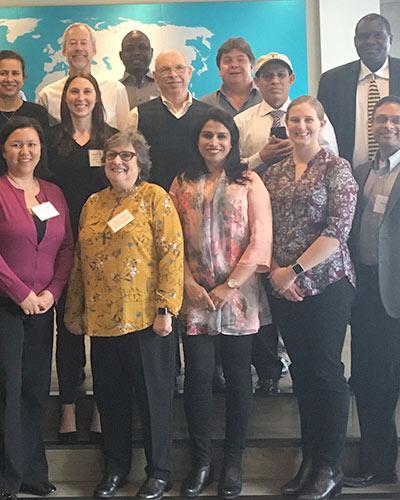February 09, 2018

Researchers from the Rotavirus Vaccine Impact on Diarrhea in Africa (VIDA) study met with the International Strategic Advisory Committee (ISAC) overseeing the project, along with representatives from PATH and the Bill & Melinda Gates Foundation (the Foundation) in Seattle, WA last week to review the overall progress and plans of the project.
The ISAC is an independent committee that provides feedback on the methodological approach for the VIDA study, led by Karen Kotloff, MD. VIDA is a follow-on study to the Global Enteric Multicenter Study (GEMS), the largest, most comprehensive study of childhood diarrheal diseases ever conducted in developing country settings. The goal of VIDA is to provide a detailed assessment of the changes in incidence, etiology, and adverse clinical outcomes of moderate-to-severe (MSD) diarrhea in children under five that emerge once rotavirus vaccine has been introduced. The study is taking place in three countries: Mali, Kenya, and The Gambia.
The ISAC meeting was organized around the first two years of preliminary VIDA data. The objectives of the meeting were: (1) to provide an overview of the data collected during the first two years of the project so the study’s progress could be assessed and analyzed with regard to the potential contributions to public health needs; (2) to give the ISAC and the Foundation an opportunity to review and assess the proposed VIDA statistical analysis plan. Topics for discussion included the etiology of MSD, incidence of MSD, rotavirus vaccine effectiveness, rotavirus vaccine impact, and clinical consequences of MSD. Much of the discussion focused on 1) new modeling approaches for VIDA and calculation of pathogen-specific odds ratios and attributable fractions to determine etiology of MSD and 2) pathogen-specific incidence.
During the first ISAC meeting in 2016, the committee reviewed the protocols to ensure they met project objectives, assessed the study design to maximize the connection to GEMS, determined critical variables, and discussed actions to mitigate risk. The pros and cons of different analytic and pathogen detection methods, such as TaqMan verses standard microbiologic assays, have been on-going topics.
VIDA is a three-year study that is scheduled to complete enrollment and follow-up visits this fall. The data will inform progress on the control of diarrheal diseases. Additional information is available on the VIDA website.
Contact
Office of Public Affairs
655 West Baltimore Street
Bressler Research Building 14-002
Baltimore, Maryland 21201-1559
Contact Media Relations
(410) 706-5260